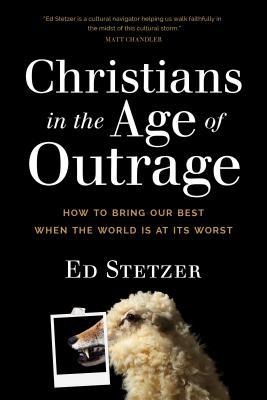
Sherman Lau teaching at Pacific Life Bible College.
During my daily commute to Vancouver, I often tune in to news and talk shows to catch up on the topics that are top-of-mind that day. Lately, the issues raised revolve around inflation, politics and EV cars.
Talk show hosts invite listeners to engage with the guest or topic. While most callers are cordial, some quickly shift from venting to outrage, prompting the host to quickly end the call.
If it seems to you, as it has to me, that people are increasingly willing to ‘rage’ in public, you are not imagining it.
Welcome to outrage culture
Sociologists and psychologists have described this phenomenon – frequent and intense public expressions of anger or indignation, particularly on social media and other online platforms – as ‘rage culture’ or ‘outrage culture.’ This cultural trend is marked by quick, and sometimes disproportionate, responses to perceived injustices or offences.
Characteristics of rage culture include:
- Amplification of outrage: Social media platforms allow for rapid dissemination of information and opinions, often leading to widespread and immediate reactions. Algorithms used by AI further amplify controversial content, as engagement (likes, shares, comments) is frequently driven by strong emotional responses. In short, these algorithms fuel our rage by drawing up content that reflects our views – a digital echo chamber.
- Public shaming: Individuals or groups perceived to have committed wrongdoings are often publicly criticized, sometimes harshly. This can lead to online harassment, ‘doxing’ (publicly revealing private information) and significant personal and professional consequences. Who can forget the outrage poured out on ‘Central Park Karen’ in 2020? Amy Cooper was placed on administrative leave as a result and trolled on social media.1
- Cancel culture: A subset of rage culture, ‘cancel culture’ involves boycotting or withdrawing support from public figures or entities deemed to have behaved unacceptably. This can involve calls for firing, de-platforming or other forms of social or economic ostracization. Most recently, this form of public outrage called for a boycott of Loblaws, the grocery chain giant, for price gouging.2
These unguarded and rash comments have negative effects on society. They reduce empathy and escalate conflicts as we lack face-to-face interaction due to the perceived anonymity of social platforms.
Furthermore, they increase political and ideological divides, leading to a lower tolerance for opposing viewpoints. Moreover, constant exposure to outrage and negativity can contribute to stress, anxiety and burnout.
Lastly, fear of backlash may lead to self-censorship or avoidance of controversial topics. All these effects erode trust in institutions, media and each other. People may become skeptical of motives and are less willing to engage with one another in good faith.
Speaking our truth in love
I think you can agree that it can be easy to hurt someone’s feelings with your words accidentally. However, it seems that as a society we have lost sight of this reality and have become more outspoken, “speaking our truth” without taking into consideration how our words will be received or impact someone else.
At Killarney Park MB Church, we have embarked on a sermon series, entitled ‘Wisdom in an AI Age,’ focusing on the Book of Proverbs. We draw on wisdom imparted from Proverbs 13:3:
He who guards his lips guards his life, but he who speaks rashly will come to ruin.
The first part of the proverb, “He who guards his lips guards his life,” emphasizes the importance of self-control and mindfulness in our speech. Our words have immense power. They can build up or tear down, heal or hurt, bring peace or stir conflict. In James 3:5, we are reminded that the “tongue is a small part of the body, yet it makes great boasts. [Consider], how a great forest is set on fire by a small spark.”
Guarding our lips means thinking before we speak, choosing our words carefully and considering the impact they will have on others. It means refraining from gossip, slander and idle chatter that can lead to misunderstanding and strife.
Proverbs 21:23 echoes this sentiment: “Whoever keeps his mouth and his tongue keeps himself out of trouble.” As does Proverbs 17:7: “Fine speech is not becoming to a fool; still less is false speech to a prince.”
The second part of the proverb warns, “He who speaks rashly will come to ruin.” Rash words, spoken in anger or without thought, can lead to disastrous consequences. They can damage relationships, reputations and opportunities.
Once spoken, words cannot be taken back; they linger and can cause lasting harm. Consider the story of King Saul and David. In 1 Samuel 19, Saul’s rash words and actions, fueled by jealousy and anger, led him to try to kill David, who had been a loyal servant. This not only strained his relationship with David but also ultimately contributed to Saul’s downfall as king.
Hard to practice
In practical terms, applying this proverb is simple to say but hard to practice. It involves:
- Listening more, speaking less: James 1:19 advises, “Everyone should be quick to listen, slow to speak and slow to become angry.” By listening more, we show respect and empathy towards others and gain better understanding before responding. By fostering a culture of empathy, understanding and respectful dialogue we can help counteract the divisiveness of rage culture.
- Thinking before speaking: We should ask ourselves if what we are about to say is true, necessary and kind. If our words do not pass these tests, it may be better to remain silent. How we respond on social media plays a role in adjusting algorithms to reduce the amplification of outrage and promoting more balanced and informative content.
- Speaking with grace: Colossians 4:6 instructs us, “Let your conversation be always full of grace, seasoned with salt, so that you may know how to answer everyone.” Our words should reflect Christ’s love and grace. We can take steps to manage our own engagement with outrage culture, such as taking breaks from social media, reflecting before reacting and seeking out diverse perspectives.
Collaboration, not confrontation
To live out the wisdom of Proverbs 13:3, we must cultivate a heart that reflects Christ, for out of the abundance of the heart, the mouth speaks (Matthew 12:34). May 19 was Pentecost Sunday, when the Holy Spirit came upon Jesus’ disciples to comfort as well as empower them to speak truth about who he was, what he did and the promise of forgiveness of sins as well as eternal life. Jesus did not leave his disciples alone to accomplish this task by their own effort.
In the same way, let us invite and allow the Holy Spirit to transform us and immerse ourselves in God’s Word so we can develop a heart filled with love, patience and wisdom. We can also pray for God’s strength to guard our lips and the wisdom to speak words that uplift, edify and build collaboration rather than confrontation. May our speech always reflect the love and grace of our Saviour, bringing glory to God and peace to those around us.
Articles on outrage culture:
- Screaming into the Void: How Outrage is Hijacking Our Culture, and Our Minds

- Outrage culture is a big, toxic problem. Why do we take part? And how can we stop?
- The Year of Outrage
Recommended resource:
- Ed Stetzer: Christians in the Age of Outrage: How to bring our best when the world is at its worst (Tyndale Momentum, 2018)
1 https://nypost.com/2020/05/26/central-park-karen-says-life-is-being-destroyed-over-viral-video/
2 https://www.cbc.ca/news/business/loblaws-boycott-canada-1.7164506a
Sherman Lau is Lead Pastor of Killarney Park MB Church in south Vancouver. He also directs the Intercultural Ministry program at Pacific Life Bible College.
His calling is to advance the development and praxis of intercultural ministry in the Canadian multicultural context by discipling Jesus followers to think theologically about culture, develop intercultural competencies and live missionally with boldness and grace.
He has written this comment as a member of The Bell: Diverse Christian Voices in Vancouver.

Great piece. Very thoughtful and timely!